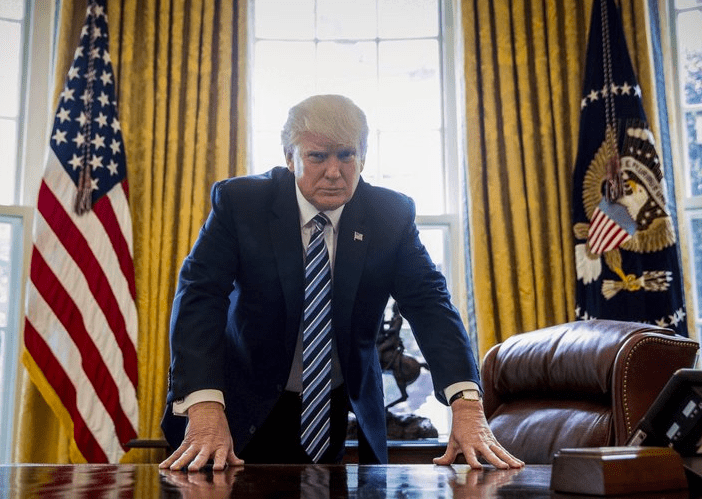Welcome to the Age of Hypercorruption
Like so many elements of politics, corruption isn’t what it used to be. The Trump presidency is both a product and instrument of a uniquely 21st-century version.

AP
Lisa Van Dusen/For the Hill Times
May 16, 2018
The phenomenon of “post-truth” — the condition whereby lying is systematically normalized in order to obscure reality — isn’t defined merely by the epidemic of explicit falsehood it aims to rationalize. It also includes lies of omission.
Among the major omissions from a political discourse dominated by stunning-upset elections, reality show presidents, warpath-ing porn stars, rancid White House quotes, fake news and a weekly parade of hallucinatory contrived narratives, the word “corruption” has been notable for its absence.
In a commencement speech at Rice University last Saturday, former New York mayor Michael Bloomberg introduced the word to the conversation about the state of U.S. politics. Bloomberg said “an endless barrage of lies” and a trend toward “alternate realities” in politics pose a dire threat to US democracy. “And when we tolerate dishonesty, we get criminality. Sometimes, it’s in the form of corruption. Sometimes, it’s abuse of power. And sometimes, it’s both.”
In 2005, the World Bank defined corruption broadly as “the abuse of public or corporate office for private gain.” It defined “grand corruption” as involving heads of government or other officials conspiring to serve the interests of a narrow group of businesspeople, politicians, and/or criminal elements. Political corruption was defined as lawmakers abusing their power as creators of the rules and standards. Corporate corruption was defined as corruption between private corporations and their suppliers or clients, or corporate officials using the corporation’s resources for private gain at the expense of the shareholders.
These delineations of corruption are relics of an analog global power grid. Corruption has quite literally gone viral since the dawn of the internet age, with the revolution in global connection launching a revolution in radically simplified, real-time collusion, from the contamination of the mortgage market that led to the 2008 financial crisis to the rigging of the Libor rate to the exploitation of unfettered global capital flows that mask the true perpetrators of corruption to the massive cyberscam of crypto-currencies to the contagion of political narratives contrived to rationalize otherwise ridiculous outcomes. The new category of corruption is hypercorruption.
In 2018, the goal of corruption is no longer strictly financial enrichment but the consolidation of power, including political power that cannot be diluted or defied by the institutions of democracy or disabled by the will of voters. Hence the corruption of intelligence oversight, of elections, of journalism, of social media and, most of all, of truth as the existential threat to all the other forms of corruption. The new hypercorruption entwines strange bedfellows, transcends borders, trumps geopolitical enmities and justifies any means to any end. The perverse privileges of membership include leveraging cynicism, marginalizing human rights, reversing social progress, de-stigmatizing cruelty and elevating thuggery to a political brand. Its practitioners share a breathtaking, tactical contempt for humanity.
As a global governance issue, corruption has evolved from the cliché of a “Third World” dictator lining his pockets with Western aid money to the hypercorruption of the president of the United States acting as a Trojan Horse for corrupt interests foreign and domestic seeking the degradation and obliteration of democracy. Without democracy, transparency dies, and without transparency, as International Monetary Fund Managing director Christine Lagarde wrote in a recent Guardian op-ed, corruption flourishes.
“This is bigger than any one person,” Bloomberg said in his Rice commencement speech. “It’s bigger than any one party.” The Democratic Party is currently preparing to fight Donald Trump, if he’s still president, in 2020. Fighting him on ideas instead of addressing the corruption that produced and defines his presidency is like fighting Godzilla with a pea shooter.
Lisa Van Dusen is associate editor of Policy Magazine. She was Washington columnist for the Ottawa Citizen and Sun Media, international writer for Peter Jennings at ABC News, and an editor at AP National in New York and UPI in Washington.
